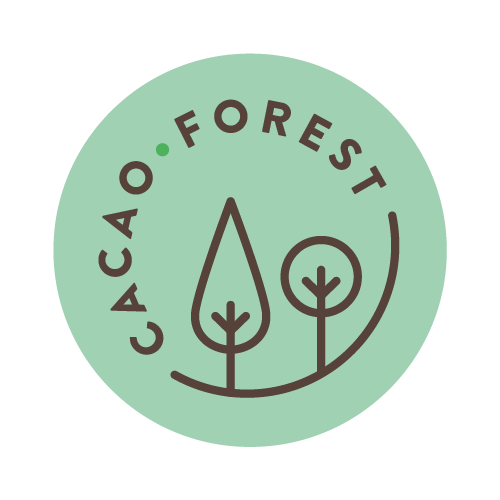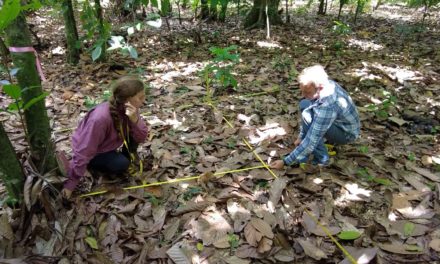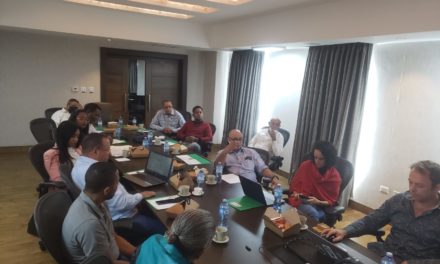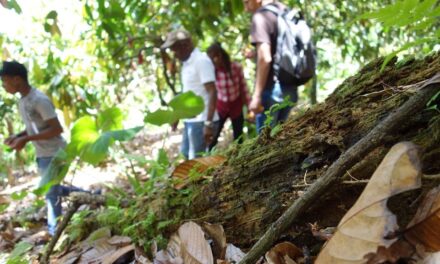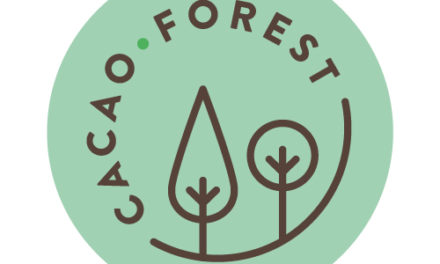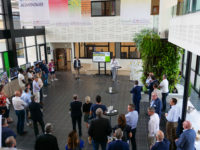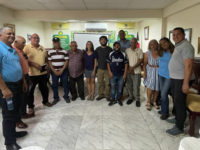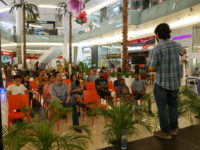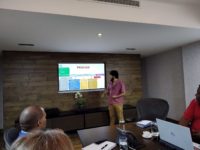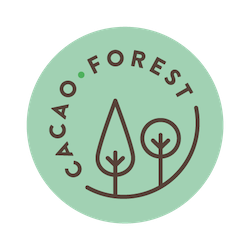Through the work carried out over the three years of Phase 1 from 2016 to 2019, Cacao Forest has demonstrated the value of its research programme and the positive impact it has had on producers’ families, grower cooperatives and the local economic fabric.
As a result, AFD (Agence Française de Développement) has decided to join the project – a prestigious partner which legitimizes the project’s achievements so far and its ambitions for the future.
The funding agreement for the Cacao Forest 2 project, providing €500,000, was signed by AFD and CIRAD on Tuesday 16 June 2020 in the presence of Sandra Kassab, Director of AFD in Santo Domingo. The signing took place in the grounds of the French Embassy in Santo Domingo, with HE the Ambassador of France, M. Didier Lopinot, declaring himself to be an enthusiastic supporter of the Cacao Forest project, having gained a positive impression of its originality and the work already undertaken. He said that the its participatory approach and public-private partnership in particular made it an innovative project that went beyond the purely scientific and methodological aspects.
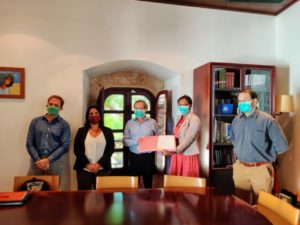
Signing of the CIRAD/AFD Agreement at the French Embassy attended by (left to right): Olivier Deheuvels – CIRAD Scientific Coordinator, Maria Rey de Arce – EF Project Coordinator, HE M. Didier Lopinot – French Ambassador to the Dominican Republic, Sandra Kassab – AFD Director, Dominican Republic, Jean-Baptiste Dabezies – Head of the Economics Department, French Embassy in the Dominican Republic.
The agreements with our existing partners including CIRAD, Earthworm Foundation and Terra Isara were renewed, and a new resources- and skills-sharing collaboration with CEDAF (Centro para El Desarollo Agropecuario y Forestal) is in the pipeline, enabling Cacao Forest coordinators to use CEDAF premises for example.
In the meantime, following on from the work begun in Phase 1, the field monitoring work is continuing:
- Finalizing the production data readings taken on the 34 parcels making up the Participatory Monitoring Network (RSP);
- Drawing up an inventory and accurate mapping of the condition of the 36 parcels of the Participatory Experimental Network (REP) and mortality of young cacao trees and associated species;
- Developing two training projects for Dominican female students within the project’s experimental network, supervised jointly with IDIAF (Instituto Dominicano de Investigaciones Agropecuarias y Forestales);
- Preparing to recruit a local technician responsible for providing the cooperatives with diversification support;
- Monitoring the production of cacao clones by the Comisión Nacional del Cacao;
- Monitoring the purchase by the San Cristobal technician of replacement shade species on the project experimental network’s new and transition parcels;
- Monitoring the agreement with COOPROAGRO for the commercial production of cacao-associated products.
Two project strategies for collaboration with Dominican national universities are also under consideration:
– one for developing agroforestry training models;
– the other for establishing an impact-monitoring framework to assess the project’s reproducibility.
The global pandemic has delayed many of the initiatives planned for 2020, but we continue to make progress and are even preparing for the roll-out of Cacao Forest in other cacao-producing countries.
